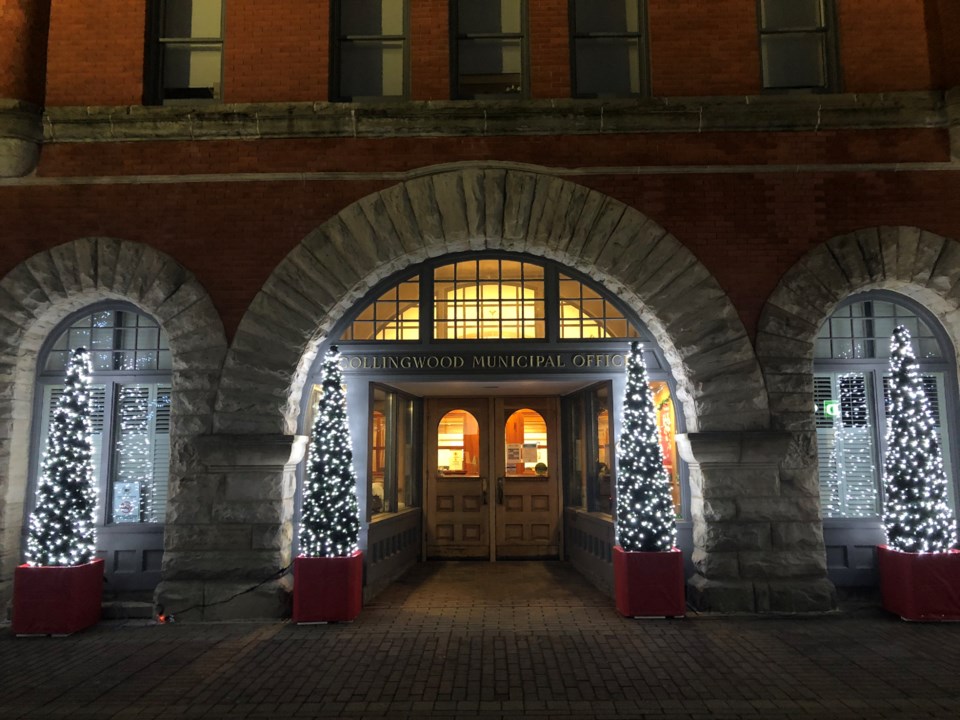More debate this week at the Collingwood council table brought the 2024 proposed tax hike down to 1.7 per cent, with a bit of finagling.
Collingwood council is set to make a final decision on the 2024 budget at its first meeting of the new year, but earlier this Monday council's committee of the whole decided to use an estimated $1.3 million surplus to bring down the approximately 3.5 per cent tax hike included in the draft budget.
The discussion on Monday night, Dec. 18, centred around the town's asset management plan, which is a provincially mandated program that is meant to have a plan and finances in place for the replacement of town infrastructure to its current service levels.
In other words, what services the town provides via its infrastructure, can be maintained and the infrastructure replaced when it needs to be.
Treasurer Monica Quinlan explained the current core asset plan is underfunded, which compounds with every year there is a funding gap. In 2023, there was a funding gap of about $1.9 million. For 2024, the gap is expected to reach $3.8 million. The total replacement value for the town's core assets is estimated at $667 million.
For some years, Collingwood has put 0.8 per cent of its tax collections (around $300,000) into a top-up fund to deal with the funding gap, but Quinlan explained the gap is growing and more will need to be done if council wants it to shrink.
A two per cent tax increase over the next three years, said Quinlan "would reduce the funding gap to almost nothing," for the town's core assets.
Deputy Mayor Tim Fryer suggested using the $1.3 million surplus to cover the costs included in the proposed 3.5 per cent tax hike, and bumping the asset management plan top up tax to 2.5 per cent. Effectively making the town's operating budget tax rate a zero increase, but adding a 1.7 per cent tax hike to the capital side of the town's budget for the lifecycle fund of the asset management plan.
While tax rates aren't typically separated based on operating and capital budgets, some members of council expressed a wish that they would be in the future.
Councillors Chris Baines and Deb Doherty, with Mayor Yvonne Hamlin, were not in favour of Fryer's idea of a zero operating increase and a 1.7 per cent capital increase. But the rest of council voted in favour so it carried and will be the budget presented to council in the new year for the final vote.
Quinlan cautioned council that a zero per cent increase to the operating budget this year could spell a double increase next year, since the operating budget covers items like salary grid increases, cost of living allowance, contract negotiations, insurance costs and more.
"I don't think it's the wisest situation," said Quinlan.
She noted there may not always be a surplus to count on.
She also said there's no guarantee this year's surplus ($1.3 million) would be enough to cover the increases to the operational budget for things like gas, insurance and inflation. If it's not, the town will have to dip into reserve funds.
Council and staff have been working on the 2024 budget since the summer, with public presentations beginning in September. The Dec. 18 presentation was the fifth draft of the budget presented to council. They will have one more vote on Jan. 8 to pass the bylaw and officially adopt the budget.
As it stands now, the impact to a Collingwood taxpayer is a 1.7 per cent increase in the municipal portion of the tax bill (less than $50/year for a home assessed at $327,000). Quinlan said the school board is predicting no increase for its portion and the county passed its rate with a 3.7 per cent increase, which, once blended adds up to about $35 per household assessed at $317,000.
Pending the vote in the new year, Collingwood residents with a home assessed at about $327,000 (the median assessment value) are looking at a tax bill increase of less than $100 for the year.
The town collects about $40 million in taxes in a year.
